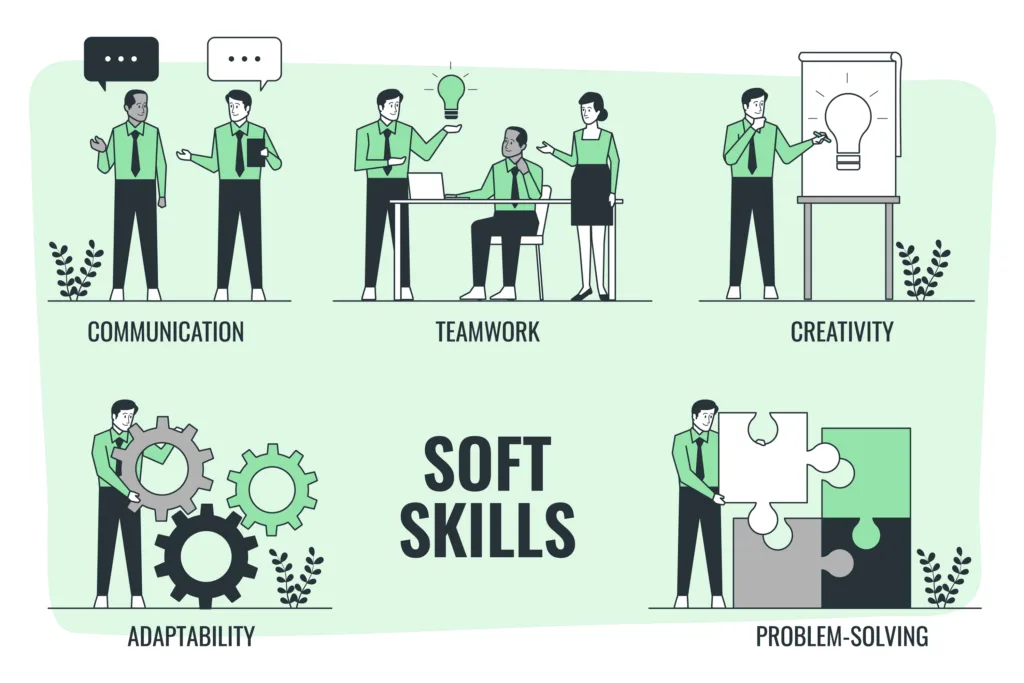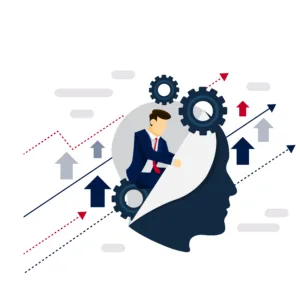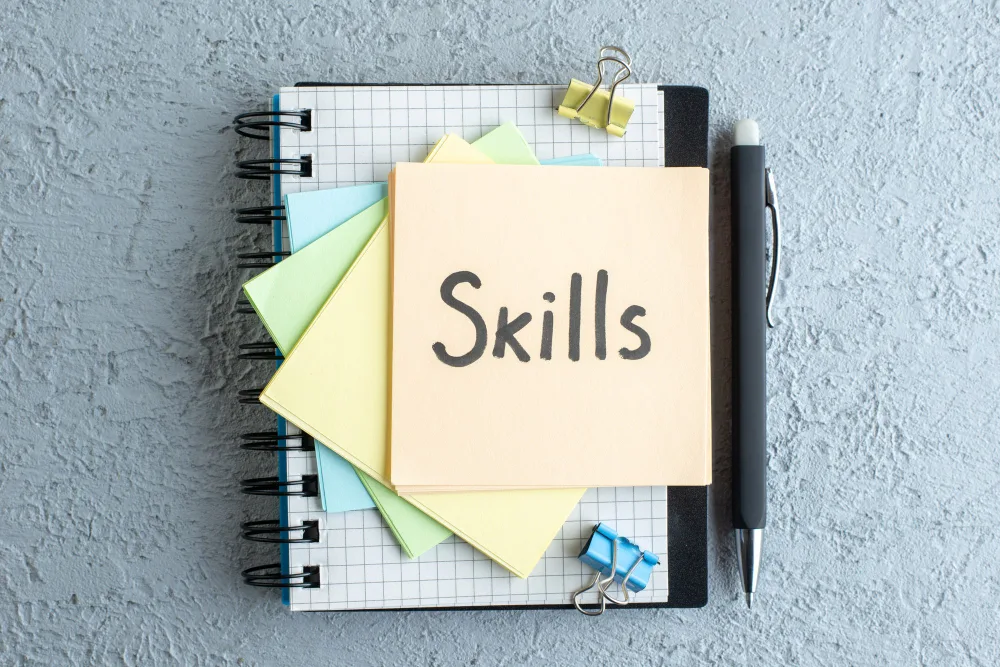
Table of Contents
Introduction
In today’s competitive job market, it’s crucial to possess transferable skills that make you stand out from the crowd. These are the skills that can be applied across various industries and roles, showcasing your versatility and adaptability. In this comprehensive guide, we will explore ten transferable skills examples that will not only impress potential employers but also make them chase after you! Whether you’re a recent graduate, a career changer, or looking to enhance your professional journey, these skills will give you a competitive edge and open doors to exciting opportunities.

Communication Skills
Verbal Communication Skills
Strong verbal communication skills are essential in any professional setting. Being able to articulate your thoughts clearly, listen actively, and engage in meaningful conversations will make you an effective communicator. Verbal communication skills come into play during interviews, presentations, client interactions, and team collaborations. By honing your verbal communication skills, you can confidently express your ideas, build rapport with colleagues, and convey your message persuasively.
Written Communication Skills
Written communication skills are equally crucial in today’s digital age. From composing emails to drafting reports, having the ability to convey information effectively through the written word is highly valued. Strong written communication skills encompass proper grammar, clarity of expression, and the ability to tailor your message to the intended audience. Enhancing your written communication skills will enable you to create compelling resumes, craft persuasive cover letters, and communicate your ideas succinctly through various written mediums.
Leadership Skills
Team Leadership Skills
Effective team leadership skills are highly sought after by employers. Being able to inspire, motivate, and guide a team towards a common goal is a hallmark of a great leader. Team leadership skills involve setting clear objectives, delegating tasks, providing constructive feedback, and fostering a positive work environment. By honing your team leadership skills, you can create high-performing teams, boost employee morale, and drive organizational success.
Related Post: 13 Bold Lessons of How Do I Become a CEO and Lead with Success.
Strategic Leadership Skills
Strategic leadership skills involve the ability to envision the bigger picture, formulate long-term goals, and make informed decisions that drive organizational growth. Strategic leaders possess strong analytical abilities, critical thinking skills, and the capacity to identify emerging trends and opportunities. Developing strategic leadership skills will position you as a valuable asset to employers, showcasing your ability to navigate complex challenges and drive sustainable success.
Problem-Solving Skills
Analytical Problem-Solving Skills
Analytical problem-solving skills are crucial for effectively addressing complex challenges and making informed decisions. These skills involve the ability to analyze data, identify patterns, and draw logical conclusions. Analytical problem-solving skills also require critical thinking, attention to detail, and the ability to evaluate multiple perspectives. By developing your analytical problem-solving skills, you can approach problems methodically, propose innovative solutions, and demonstrate your ability to think critically.
Creative Problem-Solving Skills
Creative problem-solving skills involve thinking outside the box and approaching problems from unconventional angles. These skills encompass imagination, innovation, and the ability to generate unique ideas. Creative problem-solving skills are particularly valuable when tackling complex issues that require alternative solutions. By fostering your creative problem-solving skills, you can demonstrate your ability to come up with innovative approaches, overcome obstacles, and provide fresh perspectives to drive positive change.
Adaptability Skills
Flexibility and Adaptability Skills
In today’s rapidly evolving and dynamic work environment, possessing flexibility and adaptability skills is imperative. Being able to adapt to new situations, embrace change, and thrive in dynamic settings will set you apart from other candidates. Flexibility and adaptability skills involve having an open mindset, being receptive to feedback, and demonstrating resilience in the face of challenges. By developing these skills, you can navigate uncertainties, take on new responsibilities, and demonstrate your ability to succeed in diverse work environments.
Embracing Change Skills
Embracing change is a valuable skill that demonstrates your willingness to embrace new technologies, processes, and ways of working. Employers value individuals who are proactive in seeking opportunities for growth, innovation, and improvement. Embracing change skills involve being open to learning, staying updated with industry trends, and being adaptable in the face of organizational shifts. By showcasing your ability to embrace change, you can position yourself as an asset to employers seeking individuals who can thrive in evolving landscapes.
Time Management Skills
Effective Time Management Skills
Effective time management skills are essential for maximizing productivity and achieving goals. Being able to prioritize tasks, manage deadlines, and organize your workload efficiently will ensure you make the most of your time. Effective time management skills involve setting goals, creating schedules, eliminating distractions, and utilizing productivity tools. By honing your time management skills, you can boost your efficiency, reduce stress, and deliver high-quality work within stipulated timeframes.
Prioritization and Task Management Skills
Prioritization and task management skills go hand in hand with effective time management. These skills involve assessing the urgency and importance of tasks, allocating resources appropriately, and ensuring timely completion of projects. Prioritization and task management skills require a combination of organization, critical thinking, and adaptability. By developing these skills, you can streamline your workflow, meet deadlines consistently, and achieve optimal outcomes in both individual and team settings.
Teamwork Skills
Collaboration and Teamwork Skills
Collaboration and teamwork skills are vital for building strong relationships, fostering synergy, and achieving collective goals. Employers highly value individuals who can effectively collaborate with diverse teams, communicate openly, and contribute positively to a harmonious work environment. Collaboration and teamwork skills involve active listening, conflict resolution, and recognizing and leveraging the strengths of team members. By developing these skills, you can drive successful team collaborations, enhance productivity, and achieve shared objectives.
Conflict Resolution Skills
Conflict resolution skills are crucial for maintaining a positive work environment and ensuring smooth team dynamics. The ability to address conflicts constructively, mediate disputes, and find win-win solutions is highly valued by employers. Conflict resolution skills involve active listening, empathy, and effective communication. By developing these skills, you can foster a culture of collaboration, minimize tensions, and create a harmonious workplace where everyone can thrive.
Analytical Skills
Data Analysis Skills
Data analysis skills are in high demand across various industries. Employers seek individuals who can collect, interpret, and draw meaningful insights from data to drive informed decision-making. Data analysis skills involve proficiencyin tools and techniques such as data visualization, statistical analysis, and data interpretation. By developing strong data analysis skills, you can contribute to data-driven decision-making processes, identify trends and patterns, and provide valuable insights to help organizations achieve their goals.
Critical Thinking Skills
Critical thinking skills are essential for evaluating information, analyzing problems, and making sound decisions. Employers value individuals who can think critically, assess different perspectives, and arrive at well-reasoned conclusions. Critical thinking skills involve logical reasoning, problem analysis, and the ability to consider multiple factors before making judgments. By honing your critical thinking skills, you can approach complex issues with clarity, apply logical frameworks, and make informed choices that contribute to the success of organizations.
Creativity Skills
Innovativeness and Creative Thinking Skills
Innovativeness and creative thinking skills are highly valued in today’s rapidly evolving world. Employers seek individuals who can think outside the box, generate new ideas, and drive innovation. Innovativeness and creative thinking skills involve imagination, curiosity, and the ability to connect disparate concepts to create novel solutions. By fostering your innovativeness and creative thinking skills, you can contribute to the development of new products, processes, and approaches that can give organizations a competitive edge.
Overcoming Creative Blocks Skills
Overcoming creative blocks is a valuable skill that enables individuals to navigate challenges and find inspiration even in the face of obstacles. Creativity can sometimes be hindered by mental blocks or a lack of inspiration. Overcoming creative blocks skills involve techniques such as brainstorming, seeking diverse perspectives, and engaging in activities that stimulate creativity. By developing these skills, you can overcome barriers to creativity, tap into your creative potential, and consistently produce innovative and imaginative work.
Emotional Intelligence Skills
Empathy and Relationship Building Skills
Empathy and relationship building skills are crucial for fostering positive interpersonal relationships and creating a supportive work environment. Employers value individuals who can understand and relate to the emotions and experiences of others. Empathy and relationship building skills involve active listening, understanding non-verbal cues, and demonstrating empathy in interactions with colleagues and clients. By developing these skills, you can build strong relationships, enhance collaboration, and contribute to a positive and inclusive workplace culture.
Conflict Management Skills
Conflict management skills are essential for effectively resolving conflicts and maintaining productive working relationships. Employers value individuals who can address conflicts constructively, mediate disputes, and find mutually beneficial solutions. Conflict management skills involve active listening, diplomacy, and negotiation. By developing these skills, you can navigate conflicts, promote open communication, and contribute to a harmonious work environment where everyone can thrive.
Critical Thinking Skills
Problem Analysis Skills
Problem analysis skills are crucial for deconstructing complex issues, identifying root causes, and formulating effective solutions. Employers seek individuals who can assess problems from multiple angles, apply analytical frameworks, and make well-informed decisions. Problem analysis skills involve gathering relevant information, evaluating potential solutions, and considering the impact of different courses of action. By honing your problem analysis skills, you can approach challenges systematically, identify opportunities for improvement, and contribute to organizational success.
Decision-Making Skills
Effective decision-making skills are highly valued in the workplace. Employers seek individuals who can gather and analyze information, weigh different options, and make timely and informed decisions. Decision-making skills involve critical thinking, problem-solving, and considering the potential risks and benefits of different choices. By developing strong decision-making skills, you can contribute to the achievement of organizational objectives, navigate uncertainties, and drive positive outcomes.
Frequently Asked Questions (FAQs)
Q: What are transferable skills?
Transferable skills refer to skills that can be utilized in various roles, industries, or situations. These skills are not specific to a particular job and can be valuable in various professional settings.
Q: Why are transferable skills important?
Transferable skills are important because they allow individuals to adapt to different roles and industries, making them versatile and attractive to employers. These skills can enhance career prospects and provide a foundation for continuous growth and development.
Q: How can I identify my transferable skills?
To identify your transferable skills, reflect on your past experiences and consider the skills you have acquired. Look for commonalities in different roles or projects and assess the skills that can be applied in various contexts.
Q: How can I showcase my transferable skills to employers?
To showcase your transferable skills, tailor your resume, cover letter, and interview responses to highlight relevant examples and achievements. Provide specific instances where you have successfully applied your transferable skills to solve problems or contribute to the success of projects.
Q: Can I develop transferable skills?
Yes, transferable skills can be developed and strengthened over time. Seek opportunities to practice and refine these skills through volunteering, taking on new responsibilities, and pursuing professional development opportunities.
Q: How can I improve my transferable skills?
To improve your transferable skills, seek feedback from supervisors or mentors, engage in continuous learning, and actively seek out opportunities to apply and expand these skills in different situations.
Conclusion

By understanding and cultivating transferable skills, you can position yourself as a valuable asset to potential employers. These skills not only enhance your career prospects but also provide a strong foundation for continuous growth and adaptability. Whether it’s communication, leadership, problem-solving, adaptability, time management, teamwork, analytical thinking, creativity, emotional intelligence, or critical thinking skills, investing in the development of transferable skills will make you a sought-after candidate in the competitive job market. So, embrace the power of transferable skills and unlock new opportunities for professional success!

5 thoughts on “Master the Art of Versatility: 10 Transferable Skills Examples for Career Success”